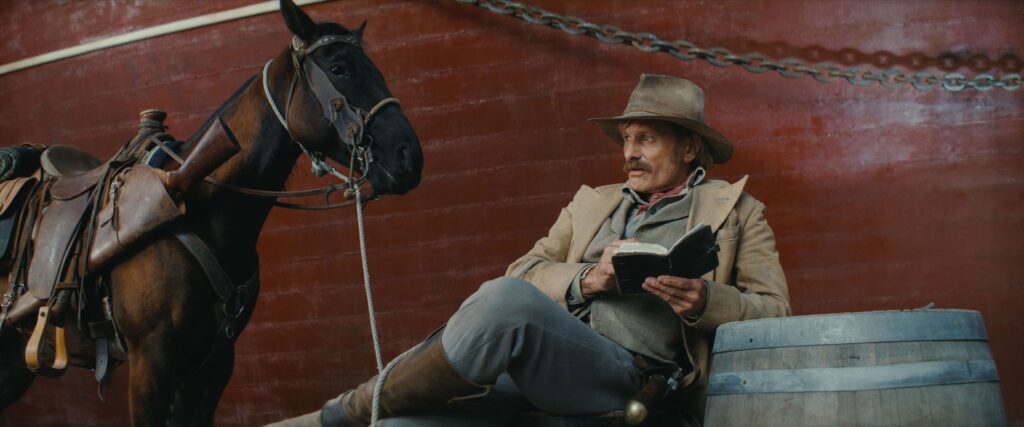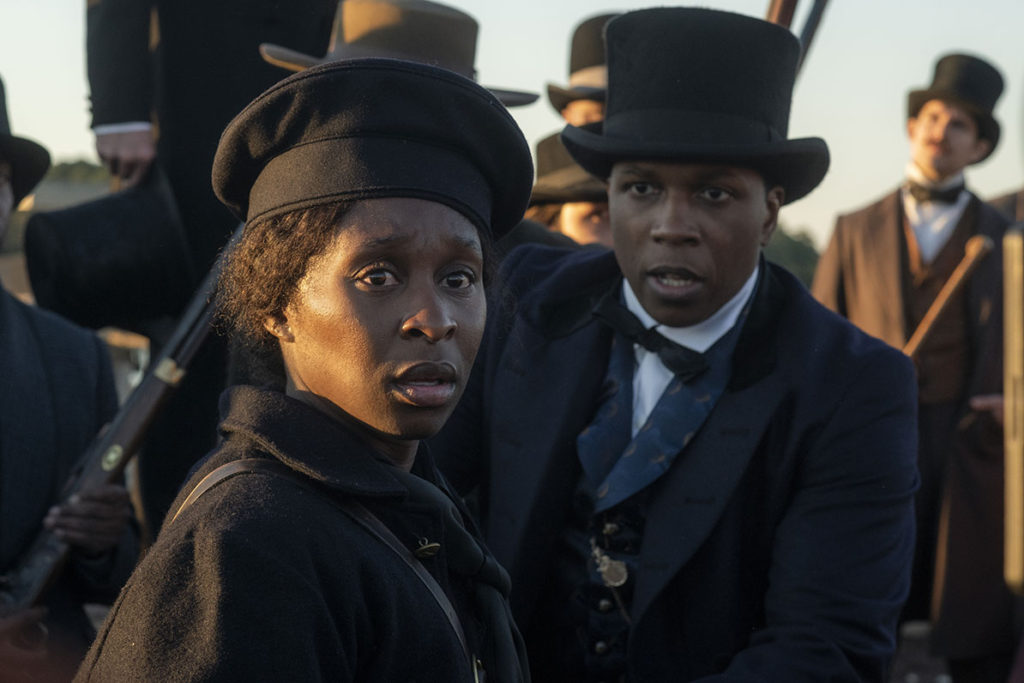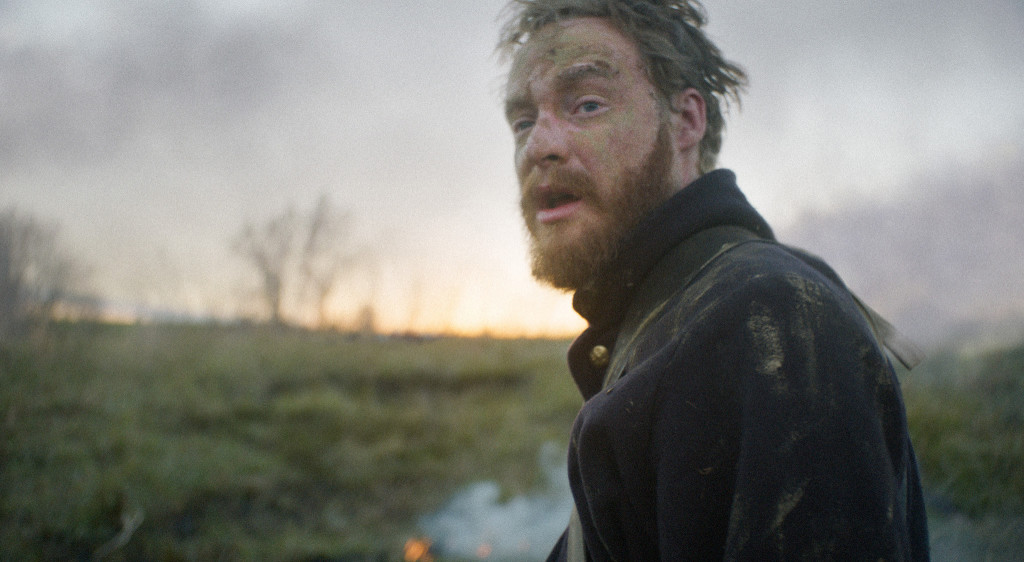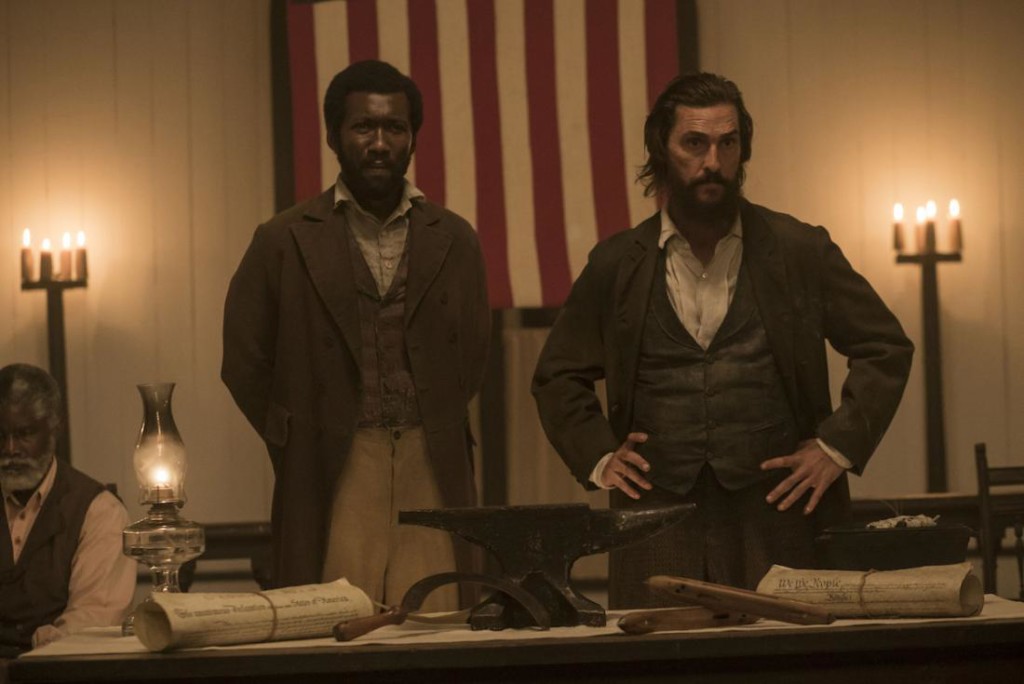
I sure do like me a western and I admire Viggo Mortensen, so I was very disappointed in The Dead Don’t Hurt, which Mortensen wrote, directed and stars in. Mortensen plays a guy who finds a woman (Vicky Krieps) in San Francisco, takes her to his Nevada homestead, and immediately heads off to the Civil War and must deal with the consequences when he returns. Cliches ensue, culminating in a lousy movie.
The central problem with The Dead Don’t Hurt is that Mortensen, as screenwriter, developed a story where the behavior of the two main characters is not always plausible or understandable and the other characters are all one-dimensional. Consequently, we don’t care about the characters; I will allow that I did care about the villain, a psychopathic villain, whom I wanted to see dead, but he was perhaps the most one-dimensional of the lot. I take notes while I watch movies, and, at one point, I scribbled this is Viggo’s movie; this is Viggo’s fault.
This screenplay was a terrible waste of Garret Dillahunt, Danny Huston and W. Earl Brown, some of our most gifted and colorful character actors, who were assigned to play roles which are essentially cardboard cutouts.
Only Ray McKinnon (Reverend H. W. Smith in Deadwood) gets enough singularity to work with, and he sparkles as a perversely random-behaving judge. (The other good thing about The Dead Don’t Hurt was the music in the closing credits, which was composed by Mortensen.)
Much of the movie rests on Vicky Krieps, whose screen appeal has eluded me. The Luxembourgian actress Krieps received much critical buzz for Phantom Thread, but I wrote then that I wouldn’t cross the street to see her next movie.
I usually watch movies alone, unless I’m with The Wife, and she and I have pre-arranged silent signals when one or both of us want to walk out of a movie. I saw The Dead Don’t Hunt with my friend Keith, and it occurred to me, about 30 minutes in, that we don’t have that kind of signal, and I couldn’t figure out how to see if he wanted to leave, too, without disturbing other patrons.
Keith and I are gonna have to develop a signal; we have been going to movies together for decades, and we’ve sat all the way through bad movies like Bite the Bullet and Le Quattro Volte, but I’m now too old to waste an hour of my remaining lifetime.
[SPOILERS FOLLOW] I usually can write a full review with a spoiler, but I just need to explain elements of cinematic misfire that entirely distracted me from the story. It begins with the rape revenge, which has become one of the laziest of plot devices. The psychopathic bully murders for sport and immediately starts leering at the Krieps character, telegraphing the most obvious movie rape since Billy Jack. She is impregnated in the rape and bears a son. Now, the Civil War was four years long, and human gestation is nine months; this means that when Viggo returns to find his wife with a son, the kid should be three years old. But the kid in the movie is five at the youngest, and more likely six. He doesn’t look or act like a three year old, speaks English, French and a little Spanish, and is learning to write numbers. He’s a six-year-old who is supposed to be three and It’s VERY distracting.
The one novelty in The Dead Don’t Hunt, the one thing I hadn’t seen in a movie before, was a death from syphilis.
When Viggo’s character despondently throws his military medal away, I was wishing he had tossed the script, too.





